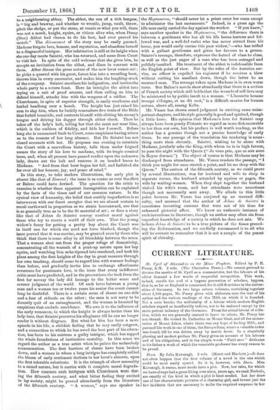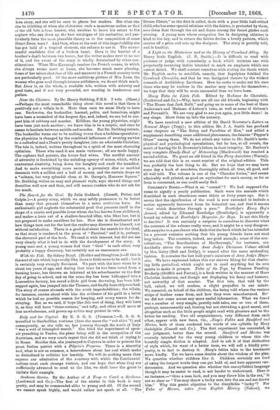Dora. By Julia Kavanagh. 3 vols. (Hurst and Blackott.)—It does
not often happen that the first volume of a novel is the one which could be most easily spared. So it is, however, with Dora. Miss Kavanagh, it seems, must needs have a plot. Now, her tales, for which wo have al ways had a great liking ever since, years ago, we read Nathalie, are exactly of the kind in which a plot is least needed. Let her draw one of her characteristic pictures of a charming girl, and invent just the few incidents that are necessary to make the required suspense in her love story, and she will be sure to please her readers. But what can she be thinking of when she elaborates such a monstrous notion as that of the old bric-h-brac hunter, who resolves to leave his estate to the nephew who can draw up the best catalogue of his curiosities, and par- ticularly form the most plausible theory as to the composition of some Henri-Deux ware ? And then, when at the cost of this improbability she has got hold of a tragical element, she refuses to use it. The unsuc- cessful candidate dies of a broken heart. Here is the barrier of a brother's death between two lovers, but the writer makes next to no use of it, and the event of the story is wholly determined by other con- siderations. When Miss Kavanagh reaches the French scenes, in which she always seems most at home, she becomes much more pleasing. Some of her minor sketches of life and manners in a French country town are particularly good. Of the more ambitions picture of Mrs. Lean, the woman who goes mad through intense selfishness, we do not think mach. But Dora is, on the whole, a readable tale, written with sobriety and good taste, and if not very powerful, not wanting in tenderness and pathos.



































 Previous page
Previous page